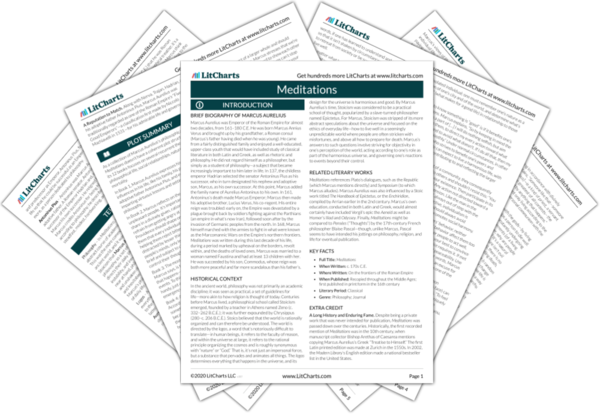Marcus Aurelius occasionally refers to human life as a voyage or waterborne journey to symbolize the brevity and instability of human life. Fittingly, Marcus is writing in the last years of his life, and he emphasizes that a person should know the right time to “disembark” from their journey—that is, to die. He argues that once we internalize this truth that life itself is short lived, we won’t get too attached to fleeting things or events. This idea aligns with the Stoic view that a person should always be calmly prepared for death. Indeed, Marcus describes life as a constantly flowing river to indicate that life is unstable, and therefore that it’s pointless to get hung up on either good or bad circumstances—neither one lasts for long. He also uses the same image to emphasize that the things we sail past on the “river” of life don’t offer firm ground to land on—almost as soon as they appear, they’re gone again. Again, this is Marcus’s way of emphasizing that life is constantly in flux and is incredibly fleeting.
Voyage and River Quotes in Meditations
Hippocrates cured many illnesses—and then fell ill and died. The Chaldaeans predicted the deaths of many others; in due course their own hour arrived. […] Heraclitus often told us the world would end in fire. But it was moisture that carried him off; he died smeared with cowshit. Democritus was killed by ordinary vermin, Socrates by the human kind.
And?
You boarded, you set sail, you've made the passage. Time to disembark. If it's for another life, well, there's nowhere without gods on that side either. If to nothingness, then you no longer have to put up with pain and pleasure, or go on dancing attendance on this battered crate, your body—so much inferior to that which serves it. One is mind and spirit, the other earth and garbage.










